
GreenHouse celebrates 10 years of social community impact
From solutions targeting at-risk youth to climate change and social justice, GreenHouse celebrates more than 100 successful ventures

From solutions targeting at-risk youth to climate change and social justice, GreenHouse celebrates more than 100 successful ventures
By Rebecca Wagner United CollegeOn September 29, 2023, 80 former students gathered in celebration of a common thread that binds them all.
It was the 10th anniversary celebration of social incubator GreenHouse, and dozens of alumni commemorated their shared commitment to making the world a better place, rooted in a desire to foster change and social justice.
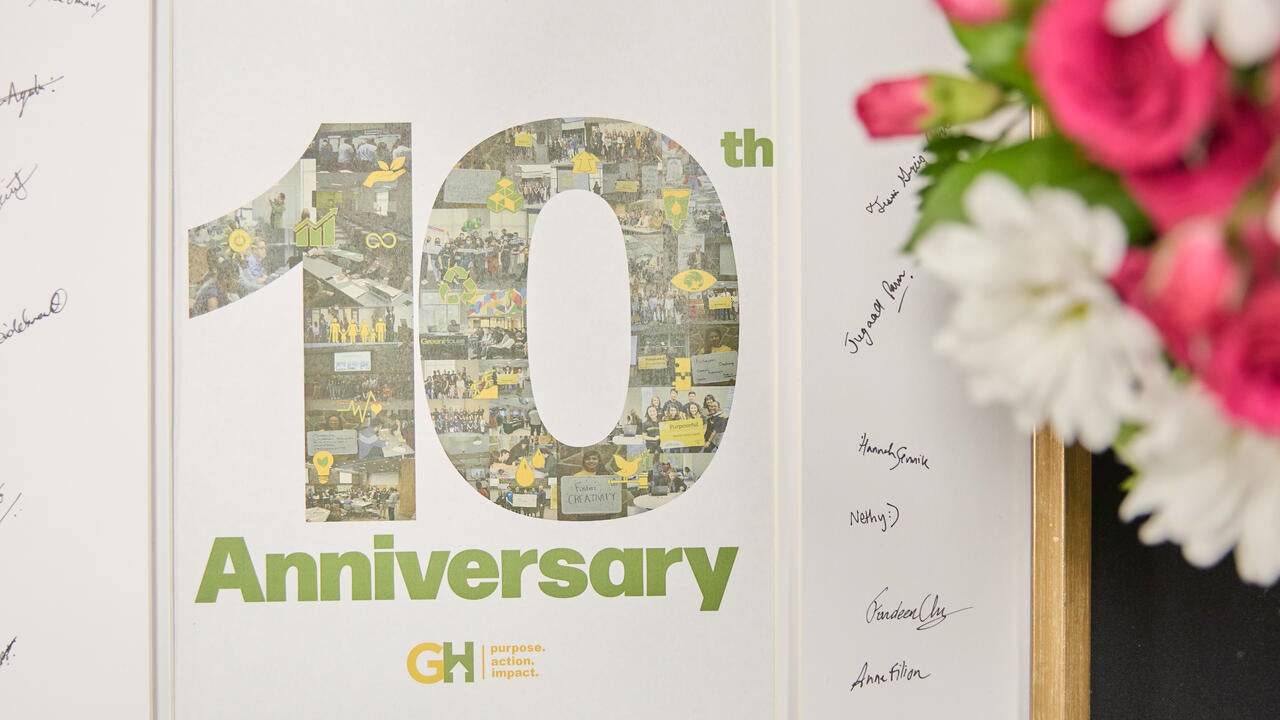
The evening was a reflection and celebration of ten years of impact and an envisioning of the decade ahead.
In 2013, Tania Del Matto, director of GreenHouse, laid out a vision for the newly established social incubator.
“We’re growing and supporting the next generation of innovators, leaders and entrepreneurs. There’s pressing global problems and they’re so complex, we need to empower entrepreneurial youth so they can change the world,” she says.
A decade ago, conditions were ripe for an incubator focused on the social good. From its inception, GreenHouse was able to tap into an innovation ecosystem at the University of Waterloo whose groundwork was laid by the Conrad School of Entrepreneurship and Business and the Velocity incubator.
With a mission centered around social responsibility, social justice and good citizenship, it is no surprise that GreenHouse began, and is currently based, at United College.
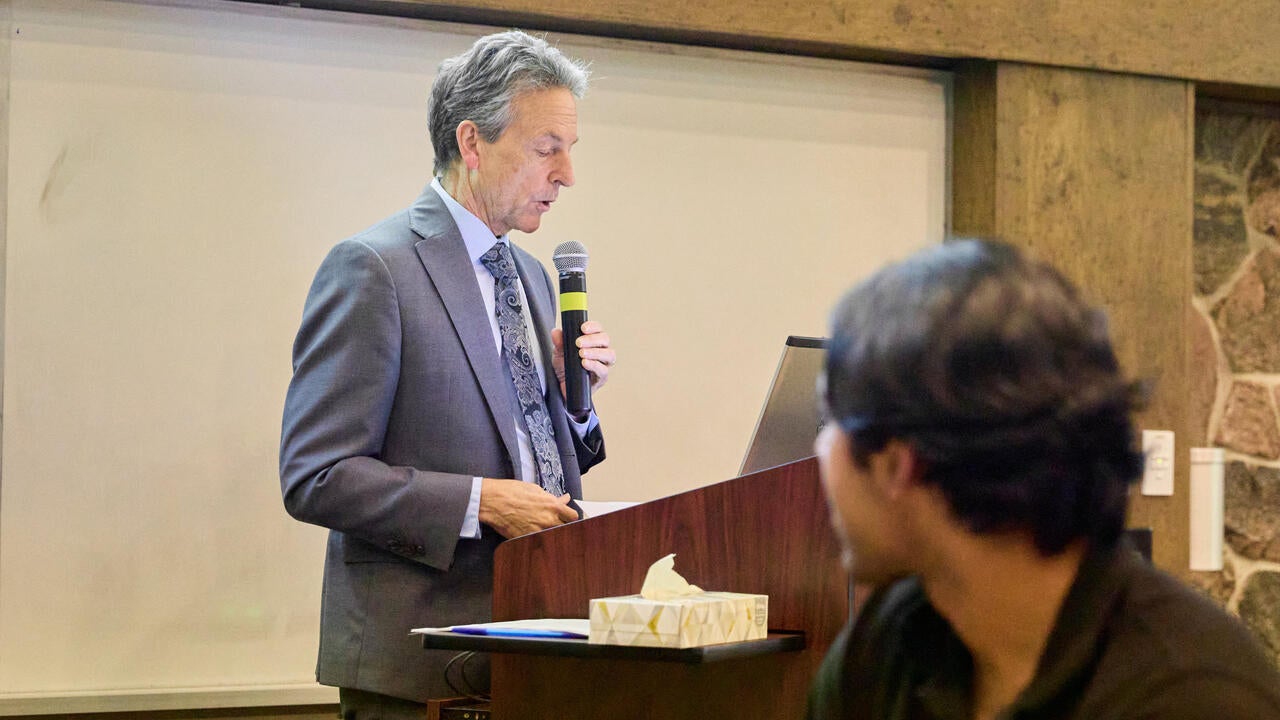
Graham Brown, former principal of United College, articulates the original GreenHouse vision: “GreenHouse was conceived as an overall strategy to enhance the college’s academic impact in a way that complemented the University of Waterloo’s academic DNA, in a way that differentiated us from the other fine institutions at the university.”
“GreenHouse is itself a beautiful illustration of social entrepreneurship at its finest. An idea was conceived, and over the course of a decade, filled with many twists and turns, the GreenHouse dream turned into a reality that has touched many people profoundly and has made the world a better place,” adds Rick Myers, principal, United College.
GreenHouse has been, and remains to this day, a catalyst for human growth and connection.
“GreenHouse has been more than an incubator. It has been a haven for intellectual courage, a place for self-discovery and a nurturing ground for authentic human connections,” explains United College’s chancellor, Michaëlle Jean.
A student’s social impact journey often begins with a simple statement and a brave inquiry. “I have an idea, but I don’t know where to start.”
From here, GreenHouse wraps students in support and resources. Through workshops, seminars, working sessions, class collaborations, events, mentorship and a community of support, ideas are nurtured into powerful endeavors that touch thousands of lives.
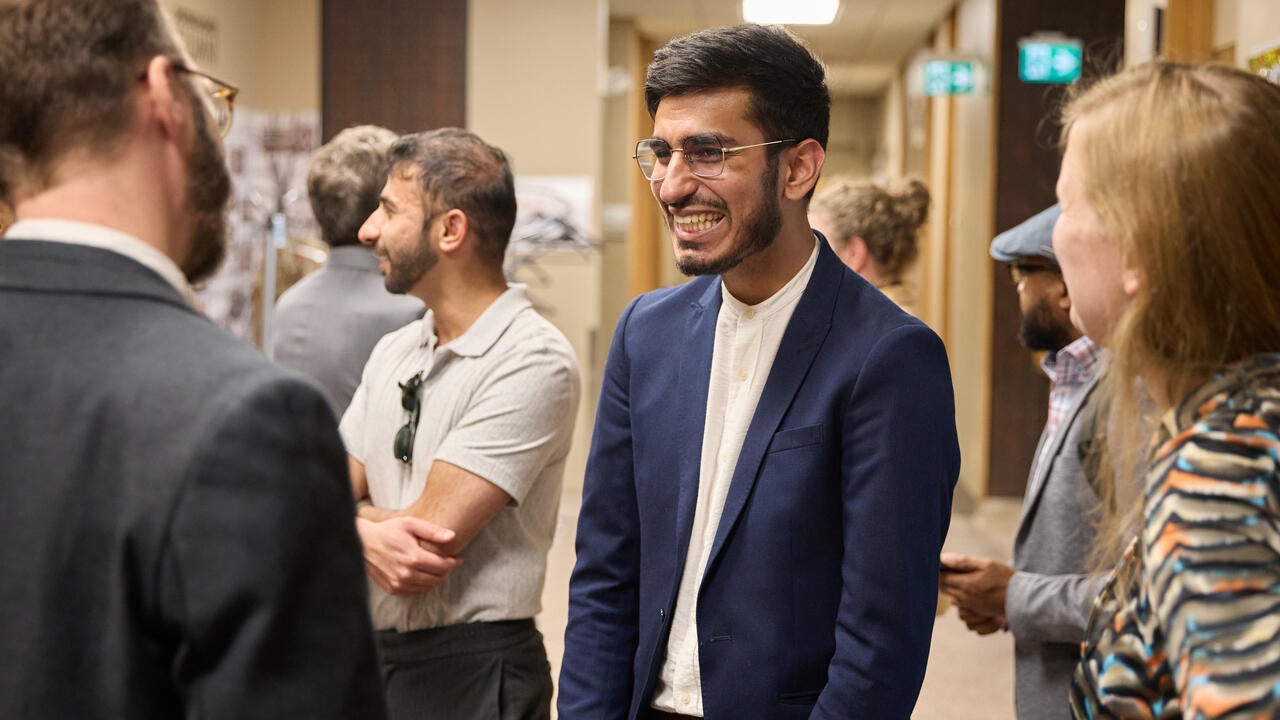
Ventures range from solutions that take on technology and ethics, like the Quantum Ethics Project, a hub for quantum enthusiasts from all walks of life to imagine an equitable quantum future, to solutions that tackle the climate crisis like Swish, a company that uses nanotechnology to efficiently clean solar panels. Ventures also include solutions that address equity, diversity and inclusion like MedInclude, a platform that leverages AI and machine learning to help underrepresented patients better understand medical information and participate in their own care.
Elizabeth Pfisterer, a GreenHouse alumnus who developed a series of courses for professionals working with at-risk youth, explains the power of the support that GreenHouse provides. “I don’t think I would have necessarily had the courage or the bravery to take a risk on an idea had GreenHouse not given me the tools or the confidence to say, ‘the worst that can happen is you pivot.’ I definitely gained a lot of the tools to start up a program from GreenHouse.”
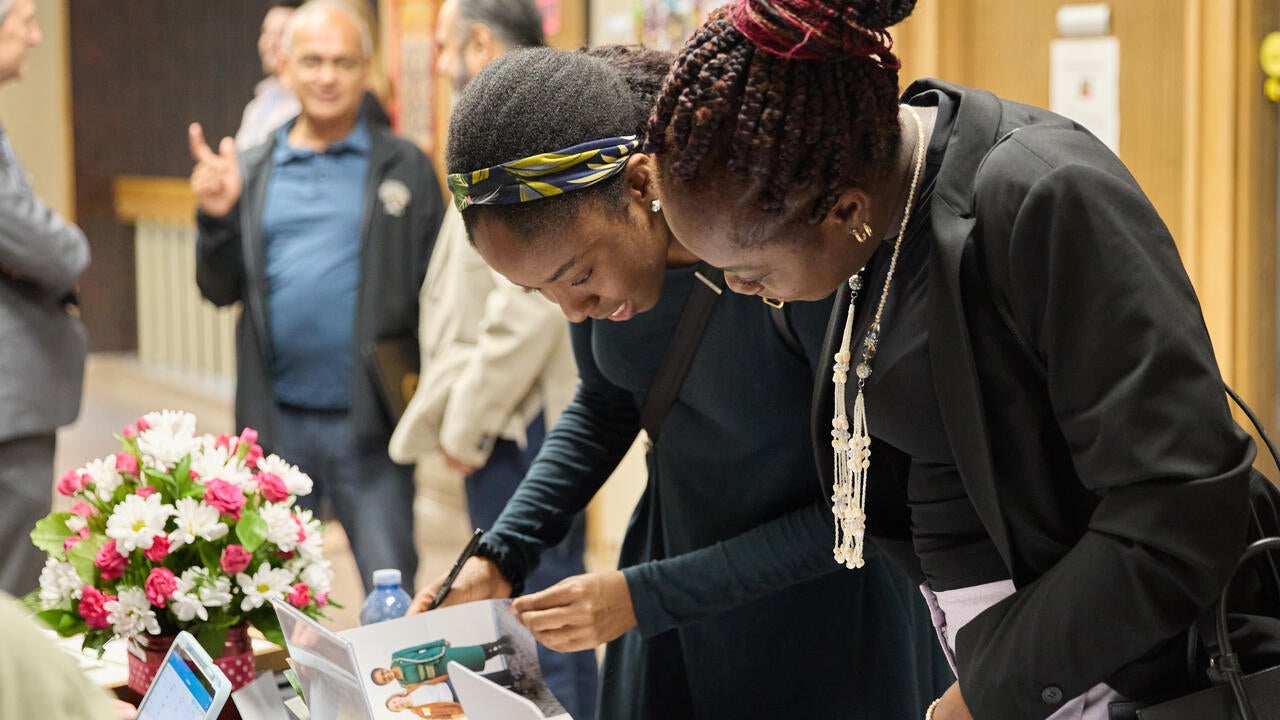
As GreenHouse evolved over time to meet changing priorities, including transitioning from a live-in community to a live-anywhere community to be more accessible to a variety of student needs, its commitment to nurturing aspiring social innovators has remained steadfast.
Through a student’s time with GreenHouse, aspiring entrepreneurs grow into social innovators.
How can ten years of impact be measured? Impact lies in numbers.
In 10 years, GreenHouse grew a 400-foot boardroom to a 2,500-foot collaboration space and has funded over 100 social ventures. More than 500 students were supported by over 100 donors. Ventures supported by GreenHouse have been included in rankings like Forbes 30 under 30 and Canada’s Top 25 Environmentalists Under 25. More than $250,000 was awarded from the Social Impact Fund. GreenHouse has also hosted hundreds of workshops, seminars, working sessions, class collaborations and events.
Impact can also be measured through student testimonials of lessons learned and trajectories altered.
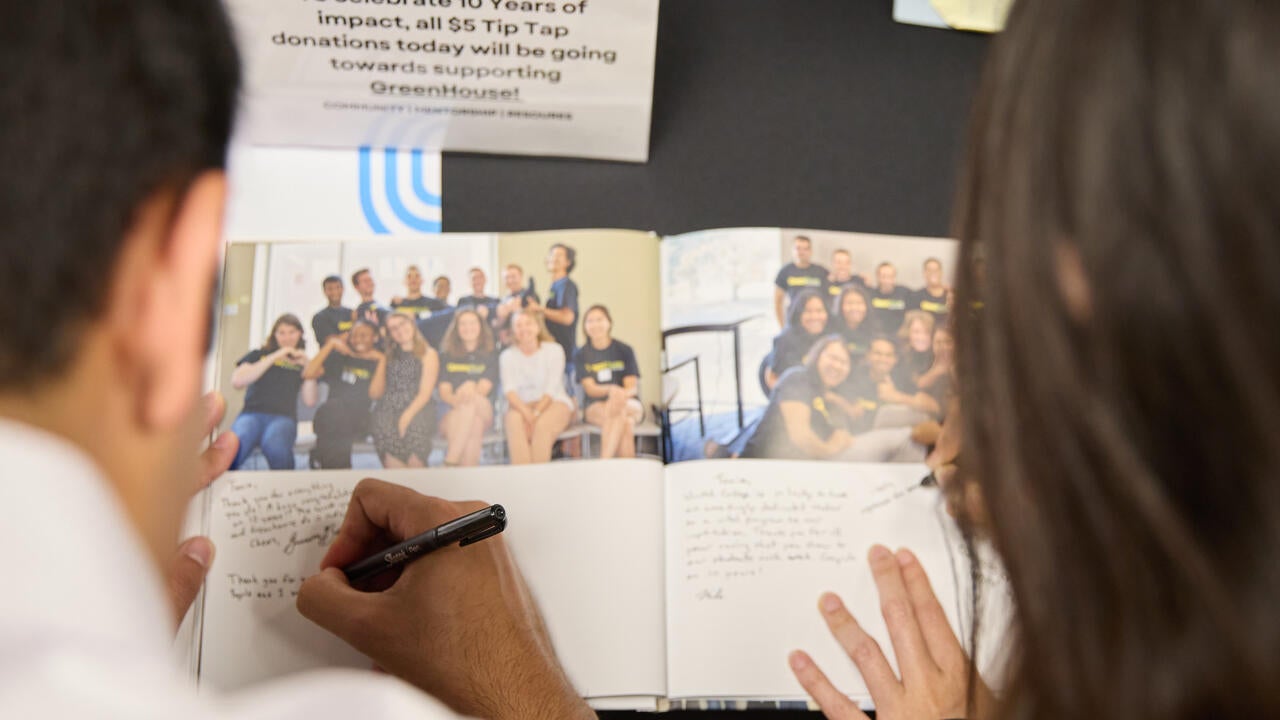
"The GreenHouse incubator not only provided me with a launchpad for my startup but also served as a catalyst for personal growth and development. It has been a truly transformative experience that has shaped my entrepreneurial mindset, expanded my horizons and connected me with a network of inspiring individuals," says Miswar Syed, founder of Swish.
Joan Arrow, founder of the Quantum Ethics Project, describes her own personal and professional growth, having passed through GreenHouse on two separate occasions. “The lessons that I learned from that first failure were so instrumental in the success of my second venture. I like to joke that you can’t grow a healthy garden without compost, so that first idea had to die for the second one to thrive.”
How will GreenHouse shape the next ten years? As the University of Waterloo lays out its vision for its 100th anniversary, it is clear that GreenHouse will continue to play an integral role in Waterloo’s world-class innovation ecosystem.
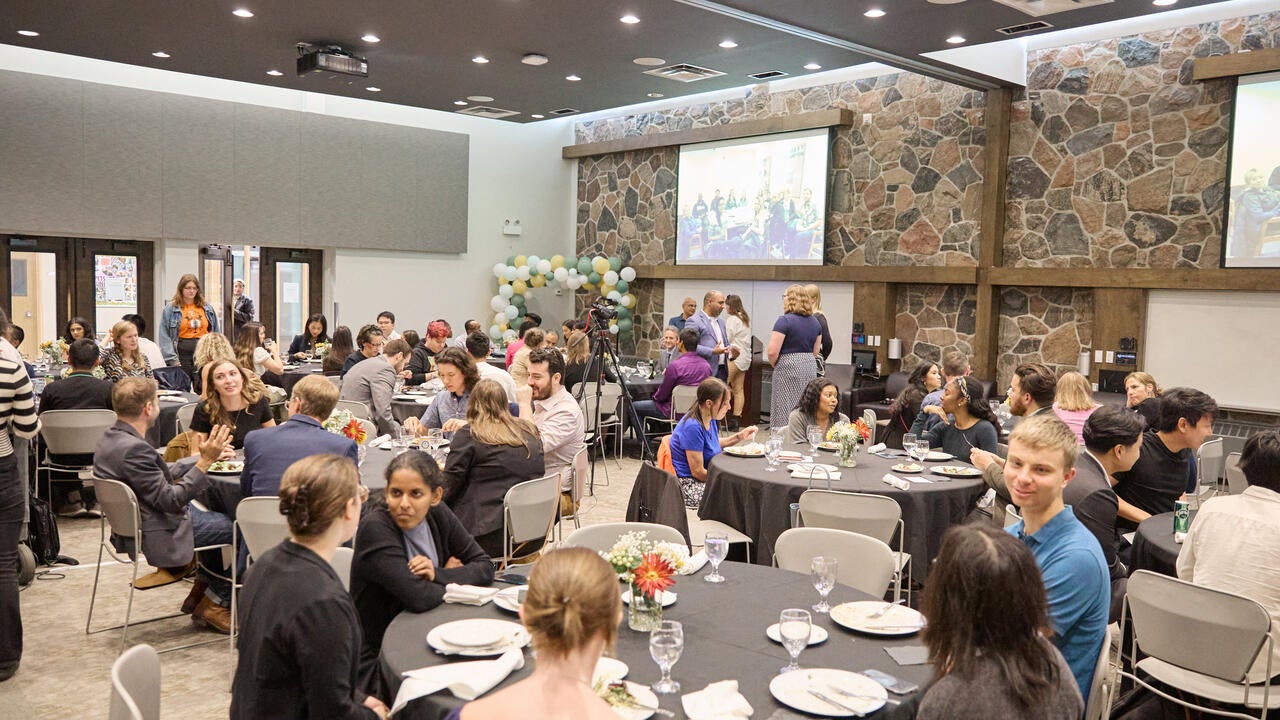
Hundreds of GreenHouse alumni have already been integral in constructing a key strategic pillar of the university’s long-range vision to lead globally, act locally.
To ensure a continuation of the GreenHouse legacy of local and global social impact, the GreenHouse-inspired Social Impact and Innovation minor was recently approved by the University of Waterloo Senate with a fall 2024 start date.
GreenHouse will continue to nurture aspiring entrepreneurs. It will continue to build supportive communities of impact. It will continue to catalyze solutions that the world desperately requires. It will continue to rise to meet the world’s increasingly complex and urgent needs. And it will continue to create meaningful and lasting impact on the lives of students.
GreenHouse alum Seun Adetunji, founder of MedInclude, describes the life-long impact of the GreenHouse social impact community. “For me, it feels like the relationship never ends because even after my time at GreenHouse, the GreenHouse family is still like family to me.”
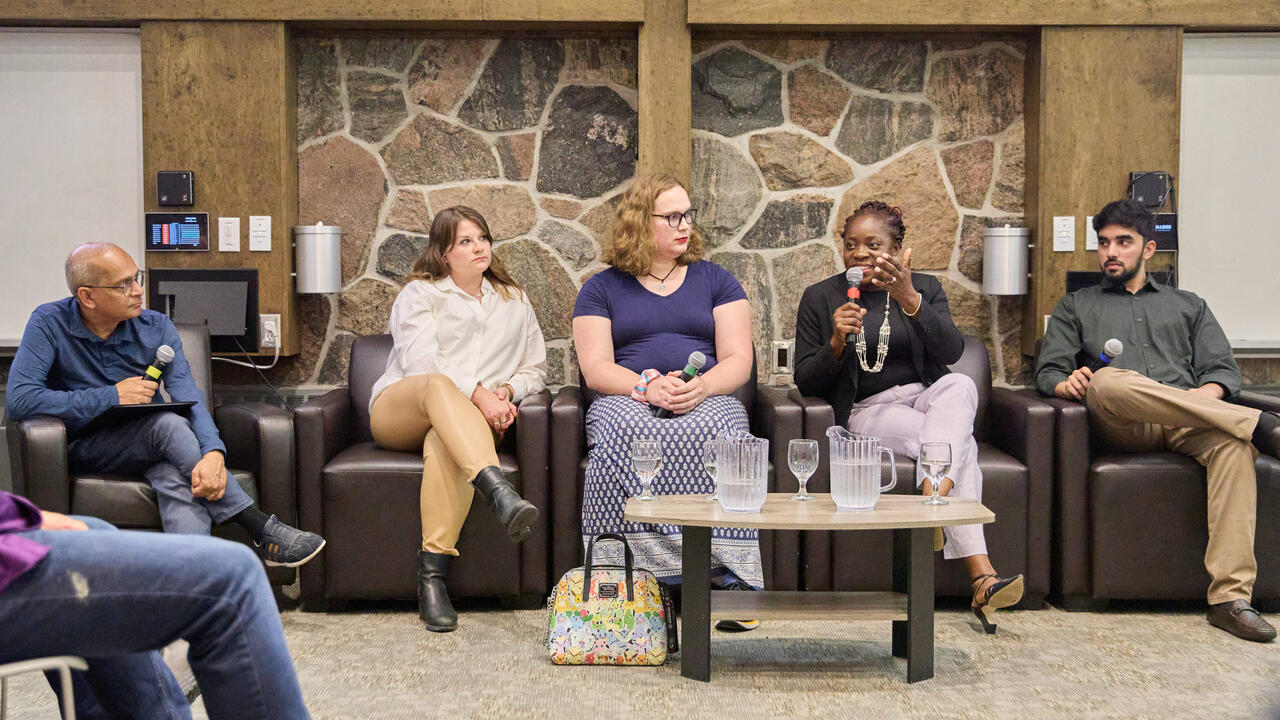
As the 10-year anniversary celebration came to a close on September 29, conversations between GreenHouse alumni to light the path ahead to 2033 were only just beginning.
“As we look ahead, we remain grounded in our commitment to serving our community in support of youth-led social innovation and impact. The next 10 years beckons with the promise of even greater impact, more innovation and deeper community engagements. Here’s to another decade of finding purpose, taking action and creating impact,” says Del Matto.

Read more
Upside Robotics secures new funding to accelerate the future of sustainable farming

Read more
Discover the meticulous work that uncovered Black stories on campus and preserved them for the future
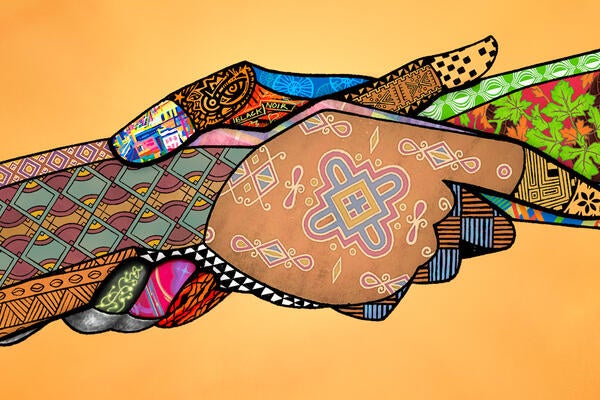
Read more
A message from the President and Vice-Chancellor
The University of Waterloo acknowledges that much of our work takes place on the traditional territory of the Neutral, Anishinaabeg, and Haudenosaunee peoples. Our main campus is situated on the Haldimand Tract, the land granted to the Six Nations that includes six miles on each side of the Grand River. Our active work toward reconciliation takes place across our campuses through research, learning, teaching, and community building, and is co-ordinated within the Office of Indigenous Relations.